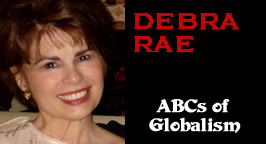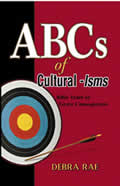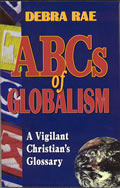OUR
NATION'S HERITAGE: NOBLE OR COMPROMISED?
PART 2
By
Debra Rae
December 28, 2009
NewsWithViews.com
A much revered minister once asked this question of Billy Graham's daughter: "Anne, what do you believe God expects from us?" A "preacher's kid," Anne raced through her cache of answers—He expects us to pray without ceasing, witness, tithe, read the Bible, and honor the Ten Commandments.
It was then the pastor-teacher countered with a surprising answer. What does God expect? He expects us to fail. Anne was astonished, but further thought convinced her. Apart from divine enablement, we "cannot keep ourselves an hour clean." All have sinned; all fall short. Yet we have an advocate with the Father, Jesus Christ the righteous. God’s expectation is failure, and we deliver! But that’s not the end of it.
Thankfully, as believers, we receive abounding grace—albeit with consequences for our wrongdoings. This the fourth son of Aaron, Eli, learned well. A judge and high priest in Israel, he was a good and pure man; however, in raising his sons Hophni and Phinehas, Eli failed to toe the line. After all three died inglorious deaths, Phinehas’ wife delivered a son, whom she called Ichabod—that is, “Where is the glory?” Because of Eli’s grievous shortcomings, the presence of God (His glory) departed Israel when, on Eli’s watch, the ark was taken captive.
Seemingly, the ark of God’s presence among us has likewise been taken captive. It’s as if Ichabod marks our nation’s tattered portal. The good news is no matter how wayward His children, God always has a remnant of faithful believers through whom divine blessings flow. For this very purpose, God chose the patriarch Abraham to usher his descendants into a saving covenant relationship with Himself so that, through them, He would bring salvation and blessings to the entire world.
Despite Israel’s rebellious ways, God stirred revival—first within Jacob’s household, then through Asa, Joash, Hezekiah, Josiah, Zerubbabel, and Nehemiah. Christian writers (Tertullian, Irenaeus, Theophilus of Antioch, Clement of Alexandria, Origen, and others) testified of comparable renewal within the early church. Surely God’s work did not cease on distant shores of what has come to be known as the Holy Land.
Revivals Among Believers
Despite grievous failings of nation-states, God graciously stirs revivals and awakenings—revivals to embolden His church; awakenings to “seek and save the lost.” The “Quietism” movement was to France what Savonarola was to Italy and George Fox, John Bunyan, and John Wesley were to England. Through ministries of Lorenzo Dow and Peter Cartwright, the Holy Spirit visited and re-visited America’s shores from “sea to shining sea.”
God released grace through evangelist-theologians (Charles G. Finney), charismatics (Elder Jacob Knapp), Christian writers (Dr. A. J. Gordon and D.L. Moody of old New England Puritan stock), and itinerary preachers (as A. B. Earle who, in fifty years, traveled 325,000 miles throughout the United States and Canada).
The famous Quaker who founded Pennsylvania (William Penn), Bible scholars (Dr. Adam Clarke), missionaries to the Natives (David Brainerd), Congregational preachers (Edward Payson of New England), and music ministers (hymn writer Philip Paul Bliss) all carried the baton of revival in the early years of America’s history.
Awakenings Among the Lost
Great Awakenings invite the presence of God, often to an entire nation. The result is renewal—not only spiritually, but also in law, government, and literature. Be sure America’s Great Awakening took on much grander proportions than the Enlightenment, said to have guided many of America’s founding fathers.
• The First Great Awakening (c. 1730–1755ff).
Early on, tens of thousands of colonists came to hear George Whitefield preach and, as a result, experienced “new birth.” In 1775 alone, more than three thousand religious organizations took root in the colonies. Moreover, higher education flourished in the wake of spiritual renewal. Of nine colonial colleges in America, most sprang from awakenings—namely, Princeton, Columbia, Brown, Rutgers Universities and Dartmouth College. Perhaps for this reason Webster defines “awakening” as “an act or moment of becoming suddenly aware of something.”
When Jonathan Edwards from North Hampton, Massachusetts, preached his fiery sermon, “Sinners in the Hands of an Angry God,” his congregation fell under conviction and, then, cried out for mercy. The impact of sudden awareness so profoundly transformed the entire nation that “even hardened skeptics could not deny it.”
• The Second Great Awakening (c. 1790–1840)
Five-time Governor of Virginia, Patrick Henry (1736-1799) once remarked, "It cannot be emphasized too strongly nor too often that this great nation was founded, not by religionists, but by Christians; not on religions, but on the Gospel of Jesus Christ." Ignited by the preaching of Presbyterian James McGready in Logan County, Kentucky, this second renewal left a legacy of many established Christian churches while, at the same time, it ushered in social reform.
America’s history clearly demonstrates that the best impulses for social reform come on the heels of spiritual awakenings. Historians concur that the anti-slavery movement in America was mainly a part of the reform movement generated by the Second Great Awakening. This rings true of movements for prison reform, child labor laws, women’s rights, inner-city missions, and many more.
• The Third Great Awakening (late 1850s to the 1900s)
The Third Great Awakening started with a 48-year-old businessman, Jeremiah Lanphier, who in July 1857 began work as an urban missionary for the North Dutch Reformed Church. Within six months ten thousand gathered daily for prayer throughout New York. Historian J. Edwin Orr wrote that “the influence of the awakening was felt everywhere in the nation. It first captured great cities, but it also spread through every town and village and country hamlet. It swamped schools and colleges.”
What impressed observers (the press even!) was little preaching, but much prayer. As people gathered, they remained largely silent while maintaining an overarching attitude of worship. It was reported that each week the number of conversions soon reached an astounding fifty thousand.
In summary, the first Great Awakening started with Jonathan Edwards who had a humble desire for God to revive his Christian congregation. The Second was ignited by James McGready, burdened for the restoration of the Christian church at large, and the Third by Jeremiah Lanphier in order to pray for national and spiritual renewal. All three awakenings left the indelible stamp of Christianity on these United States of America.
Some credit Benjamin Franklin as the most influential American to invent the type of society America would become, but I disagree. More so than any other revival, or natural influence, the Second Great Awakening exerted a lasting impact on American society.
Our Nation’s Foundational Quandary
So what’s it going to be—a noble or compromised legacy? In my view, the answer is both. Yes, many of our nation’s founders were skilled at God-speak, but practiced in enlightened principles of occult Illuminism. Religious syncretism is evidenced by the cacophony of arcane symbols found throughout our nation’s capitol.
Notwithstanding, there remains cause for the two words (Laus Deo, or “Praise be to God!”) on the aluminum cap atop the Washington Monument: A survivor of Nazism and communism, Dr. Balint Vazonyi came to the U.S. from Hungary following the 1956 uprising. Vazonyi identified four points of the American compass—namely, rule of law, individual rights, guaranteed property, and American identity. America’s noble heritage in Christ is reflected in such Bible-based foundational principles.
Religious freedom, rule of law, free trade, and private property took form among early predominantly Christian settlements of the East Coast of North America—namely, at St. Augustine (1565¬), Plymouth (1620), Jamestown (1607), and Savannah (1733). Furthermore, our nation’s Christian legacy finds expression in the first colonial grant made to Sir Walter Raleigh (1584); the first charter of Virginia, granted by King James I (1606); subsequent Virginia charters (1609 and 1611); and various ones granted to the other colonies.
Evidence of America’s Noble Heritage
Be sure there’s good, bad, and ugly among us (and within each of us, I might add). No matter, God remains actively engaged in the affairs of men. It’s really not about the atheist, religionist, deist, Unitarian, occultist, nominal Christian, or even the “wretched man that I am.” It’s all about God Almighty.
For good reason, God is expressly mentioned in most all state constitutions, mottoes, and seals; Christ’s words are chiseled on our national monuments; and the Ten Commandments are engraved in stone in our Supreme Court.
Seeded by early settlers, our nation’s biblical grounding bore extraordinary fruit throughout America’s early revivals and awakenings. In their wake, Francis Scott Key gave us our national anthem (adopted 3 March 1931). The second verse of The Star-spangled Banner proclaims: “May the heaven-rescued land praise the Power that hath made and preserved us a nation. And this be our motto: ‘In God is our trust.’”
Even our currency bears witness to America’s trust in God, as does the folded flag with stars uppermost. In fact, each fold in our nation’s flag-folding ceremony represents aspects of America’s noble heritage—e.g., the second fold pays tribute to belief in eternal life; the eleventh fold glorifies the God of Abraham, Isaac, and Jacob; the twelfth is in tribute to Christianity.
The 1954 amendment to Francis Bellany’s 1892 version of our nation’s Pledge of Allegiance also targets religious transcendence as America’s most powerful resource, whether in times of peace or while at war. Forget political correctness. On two occasions, the Supreme Court has declared our Pledge of Allegiance “under God” as soundly constitutional. Even an ACLU Handbook admits that the pledge is not objectionable simply because it contains a reference to God.
Conclusion
A nation that permits what God does not—i.e., abortion, pornography, promiscuity, adultery, homosexuality, materialism—does not rightly merit the label, “a Christian nation.” However, as Abraham discovered, the Just Judge of the whole earth is willing to withhold His wrath for the sake of fifty, forty-five, thirty, twenty, even ten righteous men.
|
Subscribe to the NewsWithViews Daily News Alerts! |
Maybe America fails to qualify as “a Christian nation.” Perhaps many of her founding fathers were less than noble. But there is no doubt that, at her inception, she was seeded by Christians and grounded in Holy Scripture.
So, then, we can rightly pray, “God bless America!” History shows that it is His pleasure to do just that. For part one click below.
Click here for part -----> 1,
















